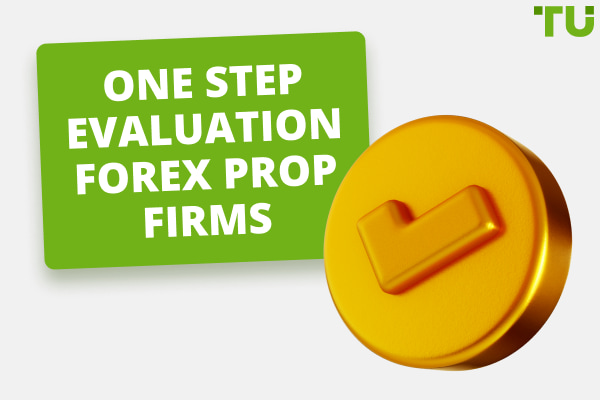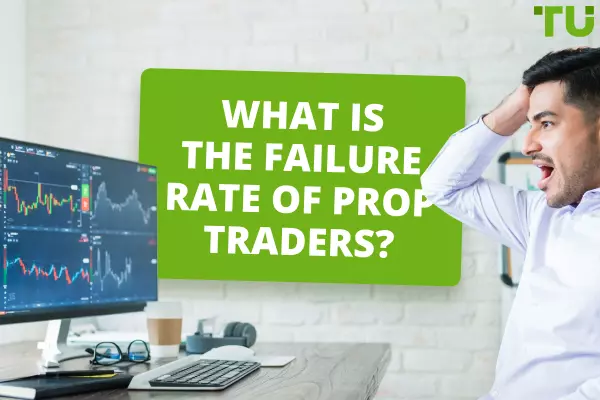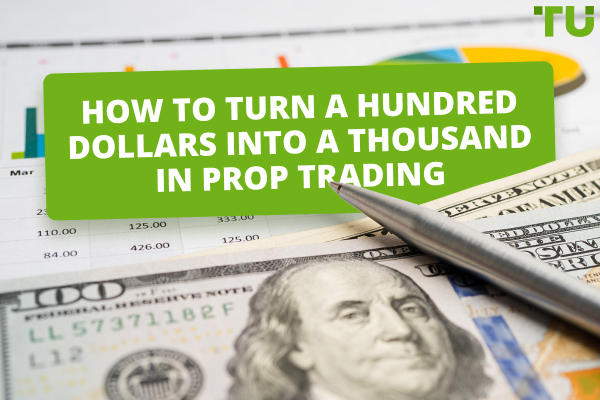According to Traders Union’s experts, the average salary for a proprietary trader in the United States is approximately $100,000 per year.
How much do prop traders make?
In the fast-paced world of finance, prop traders occupy a unique and dynamic role. Proprietary trading, as it is commonly known, involves individuals trading with their own capital to generate profits. These skilled traders operate within financial institutions or specialized trading firms, engaging in various markets and instruments. While the earnings of prop traders can vary based on numerous factors, it is widely recognized that prop trading has the potential to be highly lucrative. However, the pursuit of profit also comes with inherent risks. In this article, the experts at TU will delve into the world of prop trading and explore the factors that influence the earnings of prop traders, shedding light on this intriguing and often financially rewarding profession.
Fund your account with Topstep!Is prop trading a good career?
Prop trading offers several advantages that make it an appealing career option for aspiring traders. Here are some key points to consider:
Lower risk: Proprietary trading provides the opportunity to trade with the firm's capital rather than risking personal funds. This can help mitigate individual risk and protect personal finances
More purchasing power and more advanced strategies: Prop traders often have access to larger trading capital, enabling them to take larger positions in the market. This increased purchasing power allows for the implementation of more sophisticated trading strategies that can potentially yield higher returns
Good prospects for a full-time career: Prop trading can provide a viable path to a full-time career in the financial industry. Successful prop traders who consistently generate profits may have the opportunity to advance within the firm or even start their own trading businesses
More favorable trading costs: Proprietary trading firms often have established relationships with brokers, which can result in lower trading costs, such as reduced commission fees and access to competitive spreads. These cost advantages can contribute to improved profitability for prop traders
Access to professional tools and platforms: Proprietary trading firms typically provide traders with access to cutting-edge trading tools, advanced software, and robust trading platforms. These resources can enhance trading efficiency, provide real-time market data, and offer sophisticated analytical capabilities
It's important to note that while prop trading can offer numerous benefits, it also comes with its own set of challenges. Traders must be skilled, disciplined, and capable of managing risk effectively. The financial markets can be volatile and unpredictable, requiring continuous learning, adaptability, and a solid understanding of market dynamics.
Is Trading for a Prop Firm Worth It? How Much Can I Earn?Is prop trading safe?
Prop trading can be an attractive option for traders who lack the capital to trade on their own, but it's essential to be cautious. The risks can be significant, and not all prop trading firms operate on the same ethical and professional standards. Let's break down some critical factors to consider for a safer prop trading experience.
Firm reputation
Start by investigating the firm's reputation. Look at the firm's track record, history, and what other traders say about it. Online forums, reviews, and industry publications can provide useful insights. A solid reputation generally indicates that the firm has proven reliability and integrity.
Profit-sharing
Pay close attention to the profit-sharing agreement. A reputable firm will offer a fair and transparent profit-sharing scheme. Make sure you understand how the profits (and losses) get divided between you and the firm. Clarify all the terms before committing.
Fees and costs
Trading isn't free. Assess the fees and other associated costs like software fees and evaluation account fees. A firm with exorbitant fees can eat into your profits, making your trading endeavor less rewarding. Compare rates among different firms to find one that offers competitive pricing.
Prefer companies with direct trading
Many proprietary trading companies offer virtual trading accounts without any real financial risks for a prop firm. However, they do not benefit from a trader's success in these virtual accounts. It's essential to ensure that traders transition to real trading accounts after qualification to confirm the company's genuine interest in their success. This guarantees that the company has a stake in your success.
Transparency
Last but not least, transparency is crucial. The firm should be upfront about its operations, profit-sharing, and risk management practices. Clear and transparent communication enables you to make well-informed decisions and sets the stage for a mutually beneficial relationship.
Are prop firms a pyramid or trusted companies?How much do prop traders make?
According to data from Zippia, the average salary for a proprietary trader in the United States is approximately $100,000 per year, with an average hourly rate of around $48. However, it's important to note that salaries can vary based on several factors. Here are some key factors that influence a prop trader's salary:
Location: The geographic location plays a significant role in determining a proprietary trader's earning potential. Cities such as New York, New Hampshire, Rhode Island, Nevada, and Delaware tend to offer higher salaries for prop traders compared to other regions. For instance, the average salary for prop traders in New York is around $126,000, while in New Hampshire and Rhode Island, it is approximately $124,000
Education: The level of education attained by a prop trader can impact their salary. Those with advanced degrees or certifications in finance, economics, or related fields may have an advantage in securing higher-paying positions within prop trading firms. Continued education and professional development can also enhance a trader's knowledge and skills, potentially leading to increased earnings
Experience:
The general hierarchy in prop trading goes like this:
Clerk or assistant trader
At the entry level, you have the "Clerk" or "Assistant Trader." People in this role usually handle administrative tasks like record-keeping, trade reconciliation, and data entry. This position offers a way to get a foot in the door, learn basic trading operations, and absorb the fast-paced environment of a trading floor. While not directly involved in making trading decisions, clerks gain exposure to strategies and trading techniques.
Junior trader
Most people enter prop trading as Junior Traders, often right out of undergrad. Here, you'll be more involved in the trading process, but under the guidance of more experienced traders. You'll likely start off with smaller positions and lower risk limits. Junior traders spend their time honing skills, understanding market nuances, and proving their ability to make profitable trades. Successful performance could mean quicker promotions.
Senior trader
As a Senior Trader, you've earned greater responsibilities and, consequently, higher profit targets. Senior traders often get the autonomy to make trading decisions and may even lead a team of junior traders. The stakes are higher, but so are the rewards. Senior Traders often have a say in strategy development and may get a bigger slice of the profit pie.
Partner
Reaching the level of Partner is the pinnacle of a prop trading career. Partners typically have a stake in the firm and play a vital role in its strategic direction. Not only do they participate actively in high-level trading but they also make decisions that affect the entire firm. This can include capital allocation, risk management policies, and business development strategies.
Company and Firm Size: Well-established firms with significant capital resources may offer higher salaries and additional benefits to attract and retain top talent. For example, according to the research, the D. E. Shaw group is known for having one of the highest average salaries for proprietary traders
Best Forex prop firms in 2024
Experts have identified the following to be the Best Forex prop firms in 2023:
Topstep
Topstep is a reputable prop trading firm that provides aspiring traders with the opportunity to trade stocks, futures, and indices. They offer capital, support, risk management strategies, and coaching to help traders succeed. Traders are rewarded through a profit split arrangement, where they receive 100% of the profits up to $5,000 and 80% of the profits thereafter. Topstep also offers a 14-day free trial, group performance coaching sessions, and access to professional trading tools and resources. The firm accepts payments through multiple methods such as PayPal, Mastercard, Visa, American Express, and Discover.
SurgeTrader
SurgeTrader is a prop trading firm that allows traders to trade various financial instruments including Forex, metals, indices, oil, crypto, and stocks. They offer different account options with varying funding amounts, each with its own profit split. Traders are required to keep a portion of their profits with the capital, and the profit split can be up to 75%. SurgeTrader stands out for its non-recurring fees and the opportunity for traders to qualify for higher funding limits quickly. They also provide fast withdrawal processing and support multiple trading platforms such as NinjaTrader, TradingView, and TSTrader.
FTMO
FTMO offers traders the chance to prove their Forex trading skills through the FTMO Challenge and Verification course. Upon successful completion, traders can join the proprietary trading firm and manage a trading account. FTMO provides performance coaches, account analyses, and other support services to help traders succeed. Traders receive a profit split of up to 90% and have access to a maximum capital of $400,000. Notably, FTMO allows swing accounts that have no restrictions on holding positions over the weekend or during economic releases. They also offer custom apps for traders' discipline, journaling, and market analysis.
The Funded Trader
The Funded Trader is known for its flexibility in regulating trading styles, allowing traders to hold trades overnight, trade during news events, and trade during weekends. They offer two funding program options: the Standard Challenge Accounts and the Rapid Challenge Accounts. Traders are rewarded based on their consistency during the evaluation period, and the profit split can be up to 90%. The Funded Trader stands out for its higher trading limits, with the scaling plan allowing traders to hold a maximum balance of up to $1,500,000. The firm supports multiple trading instruments and provides real-time trading notifications, risk management tools, and one-on-one performance coaching.
The 5%ers
The5ers is an established prop trading firm that allows traders to trade Forex, metals, and indices with a live account from day one. They offer different funding packages with varying profit splits. Traders are required to keep a percentage of their profits with the capital, and the profit split varies based on the specific funding package chosen. They provide a daily live trading room, trading performance statistics, webinars, risk management tools, and one-on-one performance coaching. They also support multiple trading platforms and offer funding options up to $4 million, allowing traders to double their funding at each milestone.
Which Forex Funding Company is Best?FAQs
How much do prop traders earn?
The average salary for a proprietary trader in the United States is approximately $100,000 per year.
Do prop firm traders make money?
Yes, prop firm traders have the potential to make money by trading with the firm's capital and earning profits based on their trading performance.
What is the highest trader salary?
The highest trader salaries can vary depending on factors such as experience, skill level, and market conditions. While specific figures may vary, comparably.com suggests that some experienced and successful traders can earn up to $793,331.
Why do prop traders make so much money?
Prop traders have the potential to earn substantial incomes due to several factors. They trade with larger amounts of capital, which allows them to take advantage of more significant market opportunities.
Glossary for novice traders
-
1
Broker
A broker is a legal entity or individual that performs as an intermediary when making trades in the financial markets. Private investors cannot trade without a broker, since only brokers can execute trades on the exchanges.
-
2
Trading
Trading involves the act of buying and selling financial assets like stocks, currencies, or commodities with the intention of profiting from market price fluctuations. Traders employ various strategies, analysis techniques, and risk management practices to make informed decisions and optimize their chances of success in the financial markets.
-
3
Prop trading
Proprietary trading (prop trading) is a financial trading strategy where a financial firm or institution uses its own capital to trade in various financial markets, such as stocks, bonds, commodities, or derivatives, with the aim of generating profits for the company itself. Prop traders typically do not trade on behalf of clients but instead trade with the firm's money, taking on the associated risks and rewards.
-
4
Risk Management
Risk management is a risk management model that involves controlling potential losses while maximizing profits. The main risk management tools are stop loss, take profit, calculation of position volume taking into account leverage and pip value.
-
5
Cryptocurrency
Cryptocurrency is a type of digital or virtual currency that relies on cryptography for security. Unlike traditional currencies issued by governments (fiat currencies), cryptocurrencies operate on decentralized networks, typically based on blockchain technology.
Team that worked on the article
Chinmay Soni is a financial analyst with more than 5 years of experience in working with stocks, Forex, derivatives, and other assets. As a founder of a boutique research firm and an active researcher, he covers various industries and fields, providing insights backed by statistical data. He is also an educator in the field of finance and technology.
As an author for Traders Union, he contributes his deep analytical insights on various topics, taking into account various aspects.
Dr. BJ Johnson is a PhD in English Language and an editor with over 15 years of experience. He earned his degree in English Language in the U.S and the UK. In 2020, Dr. Johnson joined the Traders Union team. Since then, he has created over 100 exclusive articles and edited over 300 articles of other authors.
Mirjan Hipolito is a journalist and news editor at Traders Union. She is an expert crypto writer with five years of experience in the financial markets. Her specialties are daily market news, price predictions, and Initial Coin Offerings (ICO).



















